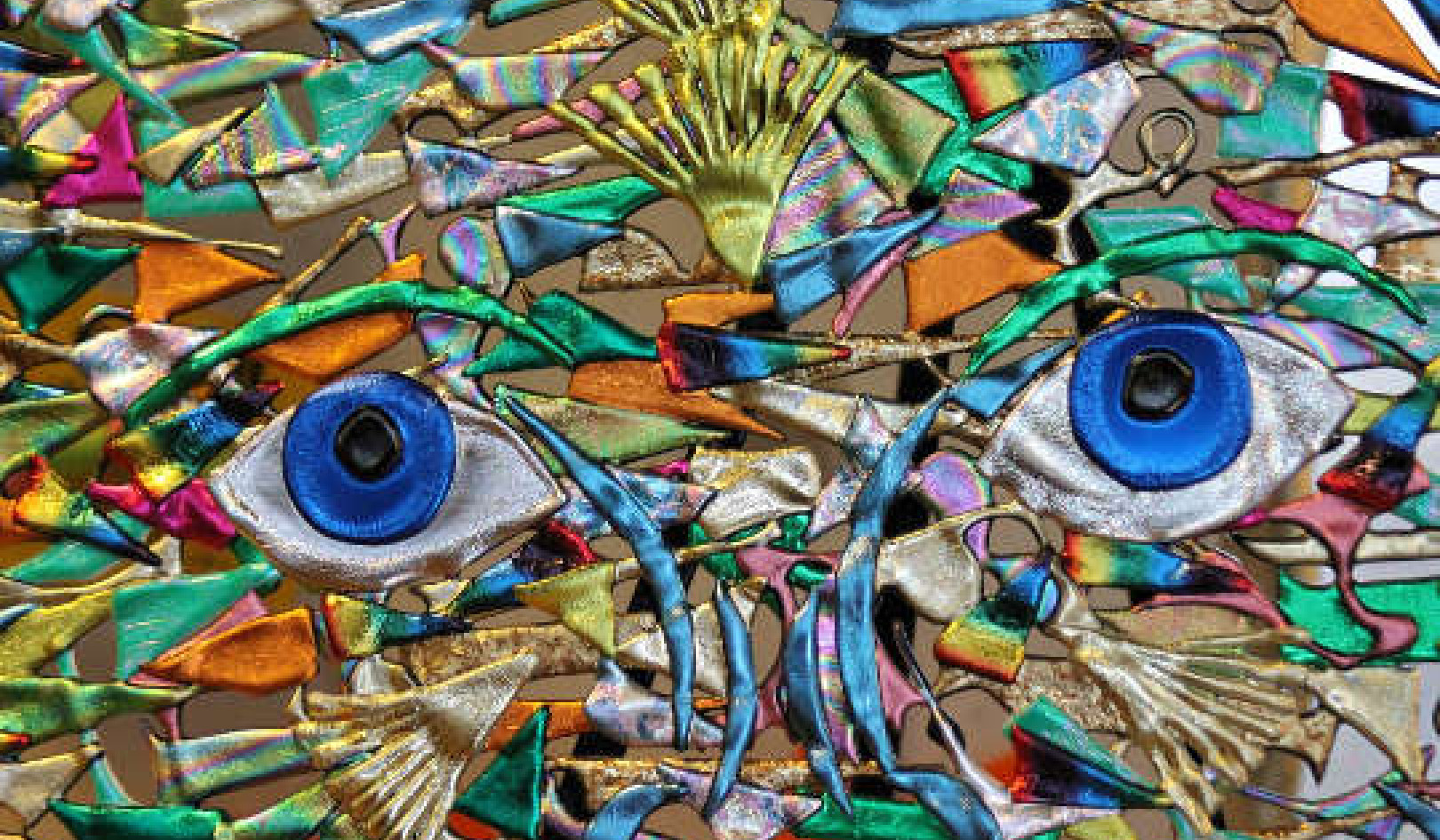
Everyone sees things differently. Furthermore, we also each have thoughts that are important to us that are not as important to others. One couple told the authors this story of how the two of them had very different ideas about how their home should look and feel.
The wife felt at home, relaxed and cozy when her son's toys were strewn around the house, when she had shopping bags and clothes draped on the furniture and around the living room. Her husband was fastidious and tidy. To him, her idea of a "comfortable and cozy" home looked like a pigsty.
This difference was always a source of conflict and upset until they both dropped notions about who was right and who was wrong and re-established rapport. Then they could start to respect each other's separate realities and work out a reasonable, mutually satisfactory solution without either one making the other "wrong."
Traditional models of couples or relationship therapy emphasize being honest about our feelings, being "up front" and standing up for ourselves. The problem with these models is that when we are upset, we do not see things clearly. Remember that our feelings start with our thoughts. When we are estranged from our own wisdom, our insecure habitual thoughts connected to our self-image are the thoughts that seem most real and important.
When we express anger or upsets, we usually do not see the bigger picture. We do not see how the situation looks to the other person with whom we are involved. These models tend to drive people further apart rather than closer together. When the other person is feeling attacked and blamed, he or she is more likely to retreat into insecurity and fear, and to defend their reality. Both become attached to their separate realities and move away from their wisdom and compassion.
When You're Upset, It's Not the Best Time to "Communicate"
The worst time to attempt to discuss or resolve issues in any relationship is when you are upset. The wisest thing you can do at this time is to step back, calm down, and re-establish rapport. You will then be able to listen and grasp how the other person's behavior makes sense to them. With deep listening, you will be able to help the other person move out of insecurity to engage their healthier thinking. When both are able to address and resolve issues or conflicts in this healthier state, you will find that the solutions are more creative and certainly wiser and more satisfying than the ideas or solutions that occur when we are imprisoned in our separate, conditioned habits of thinking.
People with whom you have relationships will appreciate the fact that you can stay calmer when they are upset. Your ability to refrain from retaliating on a personal level will help them look at what they are doing and give them a chance to see their own thinking and feelings with more objectivity. Most of the things that people make "right" or "wrong" in relationships are connected to their past and to their learned ways of thinking. If we can clear our lenses, by realizing this fact, we won't make the other person wrong for seeing things differently, but will be curious and interested in how these things look to them.
Many people are suspicious of the value of not taking things personally because they feel they have to defend themselves or risk becoming a doormat. There is actually a third option, which is to stay in our wisdom while seeing that the other person is merely defending the way that reality looks to him. This perspective keeps us from becoming insecure and feeling compelled to defend or maintain our self-concept, as well as providing an opportunity for the other person to re-engage their wisdom.
By staying open, interested and nonjudgmental, we are more likely to help others look more objectively at their own thinking about relationships. They may be able to gain some distance from the things that bother them and "push their buttons," and this distance will enable them to see their issues differently. When we make others "wrong," we usually bring out the worst in them. When anyone is feeling pushed or threatened, they are more likely to become defensive and frightened, more likely to lash out and defend their beliefs. When they are feeling respected and safe, they can stay in a good mood and are more likely to see their thinking as more arbitrary. They may start to see their expectations and "shoulds" as less important than maintaining a good feeling in the relationship.
Seeing the Whole Picture
A woman in a Principle-based professional development course was a school psychologist. She was dedicated to helping youth have more self-esteem, to enjoy learning and become more self-motivated in school. She had a conflict-based relationship with one of the more senior faculty members at her school. Early on in their relationship, this man had resisted some of her ideas for bringing self-esteem programs into the school. He felt that learning the "three Rs" was most important. He believed that discipline and structure allowed the teacher to stay in control of the class. Staying on task while not "molly-coddling" the students was more important than the "feel good" stuff she advocated. As she hardened her stereotype of him, it became standard that they would get into heated, sometimes acrimonious, arguments at faculty meetings. Both of their positions hardened over time to the point that they would automatically resist each other's proposals or ideas without really hearing one another out.
The woman attended a training session held for her school district and started to see how people can get locked into their positions. She started to see the psychological innocence of her combative colleague. She realized that he had been at this school a long time and was dedicated to the reputation of the school and to the idea that students should learn in his classroom. She could see that he had some legitimate concerns, and realized that he had never felt listened to in his relationship with her.
The next time the psychologist wanted to propose a student program related to self-esteem, she took it to this man first. She shared some studies with him on the relationship between self-esteem and learning, and she asked for his advice about how to introduce such a program without taking valuable class time away from academics or threatening the ability of the teacher to maintain control in the classroom. She told him that she recognized his legitimate concerns and listened more openly to what his concerns were. She then modified her proposal to address some of these concerns. To her surprise, and to the astonishment of everyone else on the faculty, he supported her proposal for a self-esteem program at the next faculty meeting.
Listening Deeply with an Open Mind
Relationships are much more rewarding and engaging if we can listen deeply, beyond our own thinking about another person and beyond any judgments or conclusions about what they are doing. Even people we have known for years, including parents and partners, can show new facets of their personality or interests if we are open and curious. However, we often make up our minds about who they are and what they have to offer, and we think we know them. It is easy to fall into the rut of our own thinking about people we have known for a long time. We even expect them to respond in certain ways to specific issues, situations or problems. Sometimes we do this to such an extreme that we are defensive or blaming before they even open their mouths. When we are adamant and defensive, we will, more likely than not, get what we expect -- an argument from the other person defending their reality.
When we stay open and interested, we give the other person the best opportunity to grow and tap into their healthy thinking more deeply. A friend of the authors recently ran into such a situation. She liked to shop and saw it as her "job" in the family. Her husband was more interested in sports or being on his boat during his free time. She got very busy in her job just before a planned trip to see their children, and was distressed because she felt that they would not be able to bring any presents for their granddaughter. One night she came home and found that her husband had stopped at a toy store and purchased perfect presents, surprising her by demonstrating that he knew what their grandchild's favorite toys were. Their granddaughter loved teddy bears and had quite a collection. The child was going through a difficult time and was having some trouble sleeping. The grandfather had found a book for children her age about a bear that was having trouble sleeping. This woman had been married more than 30 years, and yet her husband's behavior surprised and delighted her. It broke her stereotype of who he was.
Everyone has the innate capacity to grow and broaden their horizons. If we live more deeply in our healthy functioning, we will continue to grow and learn everyday. If both people in a relationship move into healthy functioning, living more in wisdom, they will grow together and learn from each other. From this vantage point of curiosity and an open mind, relationships will continue to change and deepen, becoming richer and more rewarding.
Reprinted with permission of the publisher, Lone Pine Publishing.
©2001. http://www.lonepinepublishing.com
Article Source
The Wisdom Within
by Roger Mills and Elsie Spittle.
This is priceless wisdom that can truly change your life. The Wisdom Within is a powerful resource for all. Enthusiastically recommended.
Click here for more info and/or to order this book.
About the Authors
 Dr. Roger Mills was one of the pioneers in the development, testing and application of the Principle-based paradigm in psychology. He is the author of Realizing Mental Health (1995) and co-author (with Elsie Spittle) of The Health Realization Primer -- Empowering Individuals and Communities (3rd edition, June 2000). He published numerous professional journal articles and is an international consultant, speaker and trainer. Dr. Mills was the Chair and Cofounder of the Health Realization Institute, Inc.
Dr. Roger Mills was one of the pioneers in the development, testing and application of the Principle-based paradigm in psychology. He is the author of Realizing Mental Health (1995) and co-author (with Elsie Spittle) of The Health Realization Primer -- Empowering Individuals and Communities (3rd edition, June 2000). He published numerous professional journal articles and is an international consultant, speaker and trainer. Dr. Mills was the Chair and Cofounder of the Health Realization Institute, Inc.
 Elsie Spittle is an internationally recognized trainer and consultant. She was one of the first people to elucidate and teach the Principles upon which the Health Realization understanding is based. She is the coauthor (with Roger Mills) of The Health Realization Primer -- Empowering Individuals and Communities, and she is recognized by many practitioners as an expert in personal and professional development. Ms. Spittle currently heads her own firm, which specializes in coaching, mentoring and leadership development. Visit her website at https://www.3phd.net/
Elsie Spittle is an internationally recognized trainer and consultant. She was one of the first people to elucidate and teach the Principles upon which the Health Realization understanding is based. She is the coauthor (with Roger Mills) of The Health Realization Primer -- Empowering Individuals and Communities, and she is recognized by many practitioners as an expert in personal and professional development. Ms. Spittle currently heads her own firm, which specializes in coaching, mentoring and leadership development. Visit her website at https://www.3phd.net/

























